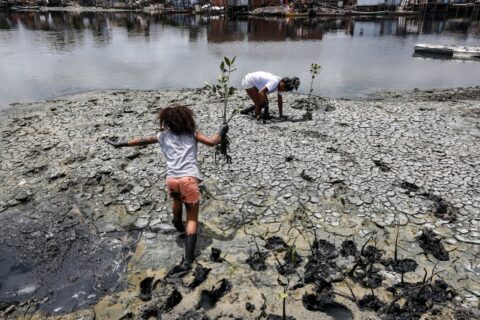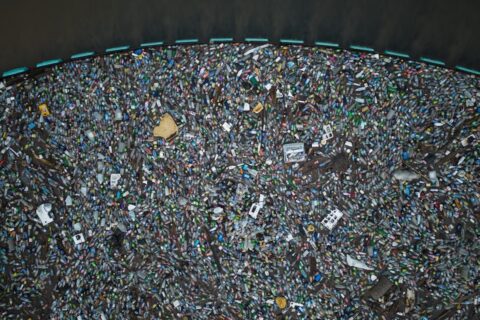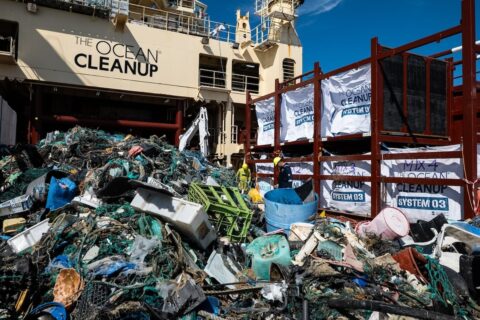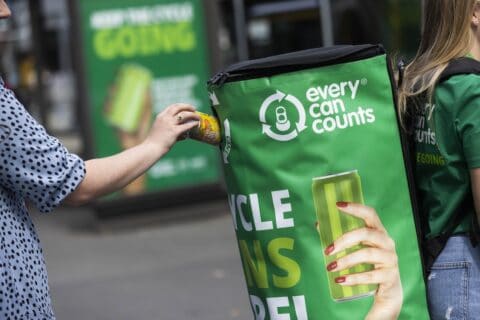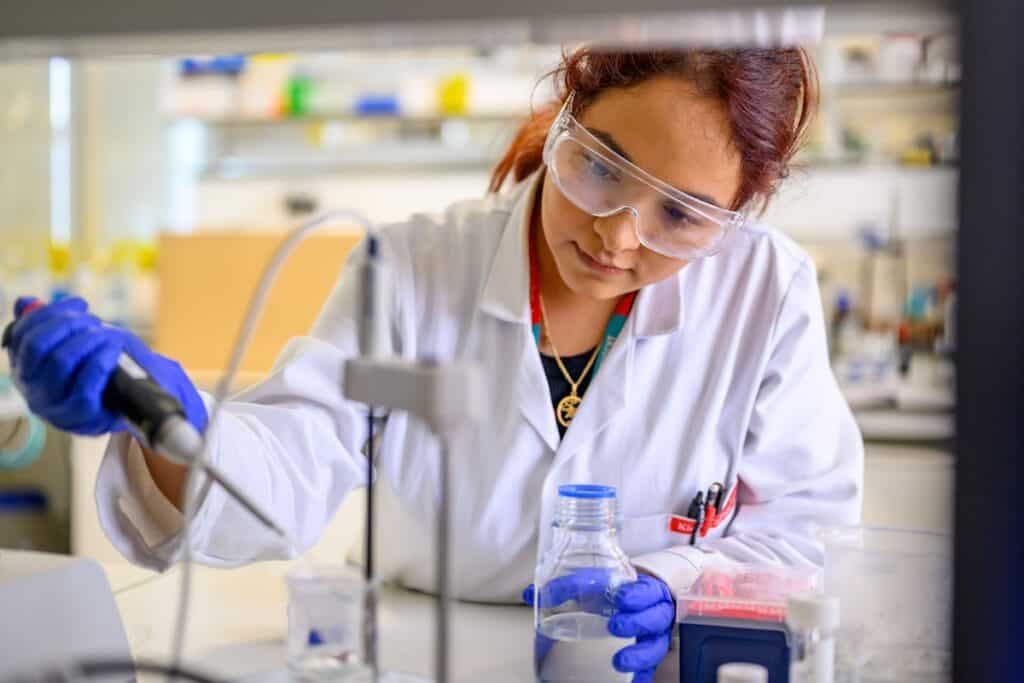
Researchers in a UK university lab have discovered a method of chemical recycling using laundry enzymes that achieves full degradation of single-use bioplastics within 24 hours, faster than industrial composting.
Scientists at King’s College London have developed an innovative solution for recycling single-use bioplastics commonly used in disposable items such as coffee cups and food containers.
The novel chemical recycling method, published in the journal Cell Reports Physical Sciences, uses enzymes typically found in biological laundry detergents to depolymerise (or break down) landfill-bound bioplastics.
Rapidly converting the items into soluble fragments within just 24 hours, the process achieves full degradation of the bioplastic polylactic acid (PLA). The approach is 84 times faster than the 12-week-long industrial composting process commonly used for recycling bioplastic materials.
This discovery offers the prospect of a widespread recycling solution for single-use PLA plastics as the team of chemists at King’s found that in a further 24 hours at a temperature of 90°C, the bioplastics break down into their chemical building blocks. Once converted into monomers (single molecules) the materials can then be turned into equally high-quality plastic for multiple reuse.
Current lack of waste management capacity
Current rates of plastic production outstrip our ability to dispose of it sustainably.
According to Earth Action, it is estimated that in 2023 alone more than 68 million tons of plastic globally ended up in natural environments due to the imbalance between the huge volumes of plastics produced and our current capacity to manage and recycle plastic at the end of its life. Plus, the problem is getting worse.
A recent OECD report predicts the amount of plastic waste produced worldwide is on track to almost triple by 2060, with around half ending up in landfill and less than a fifth recycled.
Derived from biological sources such as corn starch, cassava or sugarcane, bioplastics are seen as a more sustainable choice by consumers. However, current methods of bioplastics production can be both costly and sometimes compete with food-based agriculture for use of land.
Meanwhile, mechanical recycling methods are often inefficient. They generate CO2 and are typically incapable of producing high-quality reusable materials.
So, whilst labelled green, these forms of recycled plastic primarily end up in landfill after just one use, causing many retailers to revert back to using oil and fossil-based materials.
Scalable and sustainable new blueprint for production
By contrast, the research breakthrough at King’s opens up the opportunity for a sustainable, circular economy that phases out production of fossil-based plastics and tackles the huge volume of plastic waste.
The speed at which bioplastics break down using this new chemical method carries potential to revolutionise production, offering an efficient, scalable and sustainable blueprint for recycling single-use bioplastics.
In essence, it is all about biology, explains Dr Alex Brogan, Lecturer in Chemistry at King’s College London:
“The inspiration for this project came from a problem with bioplastics used in medical and surgical products degrading in the body. We’ve turned this problem around and applied it to the issue of recycling the single-use bioplastics we use in our everyday lives using a common enzyme found in biological laundry detergent.
“Being able to harness biology to deliver sustainable solutions through chemistry, allows us to start thinking of waste as a resource so that we can move away from oil and other non-renewable sources to create the materials we need.”
The scientists are extending their research to look at recycling other commonly used and mass-produced plastics, such as those found in single-use water bottles, film and sheet plastic packaging, and clothing.
Quality is key, says Susana Meza Huaman, PhD researcher on the project at King’s College London:
“Our research marks the first step in developing new technologies in waste management for recycling bioplastics that are of equal quality to the virgin product. Until now this has been a major challenge in plastics recycling, as while bioplastics are made of biological materials, they are not all compostable and most recycling methods are inefficient.”
Research of this kind is also set to benefit from investment in science at King’s, concludes Professor Rachel Mills, Senior Vice President (Academic) and Professor of Ocean Chemistry at King’s College London:
“This new research can be applied immediately to global challenges. To drive our interdisciplinary capability forward, King’s is making a £45.5M cross-university investment in science research, education and infrastructure.”
Dr Alex Brogan’s current research sits within King’s College London’s Chemistry Department and the Net Zero Centre, where the natural sciences combine with Engineering to identify sustainable solutions for decarbonisation, manufacturing, energy consumption and urban environments.
The proximity of biophysicists and chemical biologists promotes valuable discussion and cross-pollination of ideas to apply common scientific principles into different environments.
King’s College London is ranked amongst the top 40 universities in the world and top 10 in Europe. It is one of England’s oldest and most prestigious universities, with more than 33,000 students (including more than 12,800 postgraduates) from some 150 countries worldwide, and 8,500 staff.
Further Reading:
- More about science at King’s College London; and its Net Zero Centre;
- More on the latest report from Earth Action on Plastic Overshoot Day 2023;
- More from the OECD on Global Plastics Outlook: Policy Scenarios to 2060;
- Also on SustMeme, Chemical Recycling and the ‘Future of Packaging’;
- Also on SustMeme, Pollution on rise as only 9% plastic waste recycled;
- Also on SustMeme, FMCG and retail giants back £1M fund for flexible plastic recycling;
- Also on SustMeme, Innovation call to tackle problem of plastic packaging in Africa;
- Also on SustMeme, Half million people petition Amazon to offer plastic-free packaging.
Check out the full archive of stories on the SustMeme Circular Economy Channel, now available to Sponsor.

